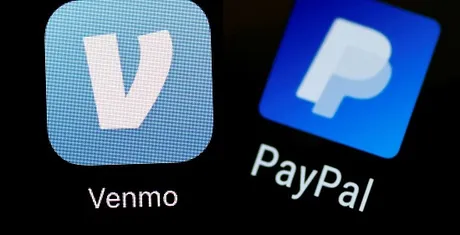
The vault
Every centralized custodian of crypto has a vault. The size of the vault determines how much security is allocated to it. Corporations will have to upgrade security often to keep up with Bitcoin's rising price and rising percentage of reserve funds being added to the books. Every time honey is added to the honeypot (say x10), security must increase. Shareholders demand it.
I imagine the initial security being an air-gapped multi-sig cold wallet who's transactions must be signed by X of the number of people required. Perhaps 13 users have access but only 5 are needed to make a transaction of a certain size. These cold wallets will be connected to hot-wallets via the air-gapped multi-sig.

Number of transactions
Corporations will be a gigantic centralized custodian of funds, just like exchanges. There will be very few on-chain transactions, but they will still charge fees on every transaction, even though they are batched together. Healthy competition may prevent this from lasting long, but we'll see.
The way this works is simple. There are only so many wallets allowed inside of the Paypal database. They have their vault and they have their approved list of vendors. That is all. Your account with them is virtual in nature as they write you IOUs for Bitcoin. Your share of the vault is displayed via the frontend and stored in their centralized user database that they have already done extensive work on.
When you make a payment to a vendor in Bitcoin via Paypal, the transaction will appear instant. Paypal will take money from your virtual Bitcoin wallet and give the IOU to the vendor. Anyone can choose when to cash out. The question is whether Paypal chooses in that instant one of two options:
- Does Paypal buy your Bitcoin back from you, returning it to the vault?
- Does Paypal use an exchange to actually trade that Bitcoin into USD?
Again, the exchange Paypal uses is also going to be centralized, and they'll have a big wallet on that site connected to everything else via bots and servers. Whenever you pay a vendor or buy/sell Bitcoin, Paypal has a lot of options of what they are going to do on the backend.
- They can charge you fees that didn't incur on-chain data.
- They can make everything appear instant because the only entities that have to wait for actual on-chain transactions to go through are the vendors and Paypal. Even then they can get around this with liquidity on exchanges.
Liquidity
If the liquidity of hot wallets and exchange wallets tilts too far in a single direction, an on-chain transaction must be made. Either the hot-wallet is too bloated and needs to kick out money to the cold-wallets or the cold-wallets need to refund the hot wallets. In all likelihood, Paypal will find a lot of ways to work smart not hard here and cut costs.
Regulation
Corporate regulation of crypto will be complicated and costly, but there may be ways to sidestep some of the more devastating impositions. For example, Paypal is not allowing peer-to-peer transfers. This is huge. Bitcoin is self-defined as a peer-to-peer network. What does this mean?
It means that Paypal is sidestepping a crazy amount of regulations and hassles by keeping their network fully centralized. That's how they like it. They are the boss. Business as usual.

Collateral
Will corporations have enough Bitcoin in their vault to ensure everyone can cash out their Bitcoin? Again, you don't own any Bitcoin with Paypal. You have to sell it for cash or buy something from a vendor. Those are the only flows outward from virtual Bitcoin wallets.
Therefore, they won't have to hold any collateral in Bitcoin. They only need to have enough USD to buy back the virtual Bitcoin from the accounts. Normally you would do this by having massive Bitcoin reserves so that you aren't betting against Bitcoin performing well.
Will they engage in factional reserve banking?
Definitely not, at least not this early in the game. At this point it is far more profitable for the corporate vault to be GIGANTIC. This sows confidence in a new technology and is the profitable decision for the time being. No guarantees 10 years down the road, though.

Example #1
Paypal users want to buy Bitcoin. No problem. Paypal has X number of Bitcoin reserves, lets say 100,000 BTC. Paypal sells users their Bitcoin on the internal private database and writes the buyer an IOU just like the gold-standard (invention of paper money).
If Paypal sells more Bitcoin and writes more IOUs than they actually own, they will be engaging in fractional reserve banking. Another way to look at it would be Paypal is gambling on the market via leveraged margin or just quite sure their isn't going to be a bank run. Either way, fractional reserve banking with Bitcoin means you're going bearish on Bitcoin. Will be interesting to see the first corporations to do this. Could be a scandal or perfectly legal... who knows.
Example #2
Joe wants to buy a computer from his favorite gaming company. He buys it with $2000 worth of Bitcoin on Paypal. $2000 worth of Bitcoin exits Joe's account and enters the vendor's account. The vendor can choose to leave that virtual Bitcoin in the account or withdraw it and pay the on-chain fee. Approved vendors are the only entities that can move actual Bitcoin on Paypal.
Conclusion
This is an exciting transition and a prime example of decentralization hard at work. It isn't going to take long before corporations to realize that with Bitcoin, they are all the central bankers.
Yeah sure, the power is spread out more, but they have a lot to gain by being a part of this system. Everyone does. Even the central bankers. This technology of decentralized power could easily make everyone richer beyond their wildest dreams. That's what abundance technology does, and this time, it's money.
Flat architecture allows for infinite scaling as it pertains to trust.
Disclaimer
Some of this information is false, predictive, or pure speculation.
Posted Using LeoFinance Beta
Return from Paypal Precedence: Corporate Crypto Business Model to edicted's Web3 Blog
